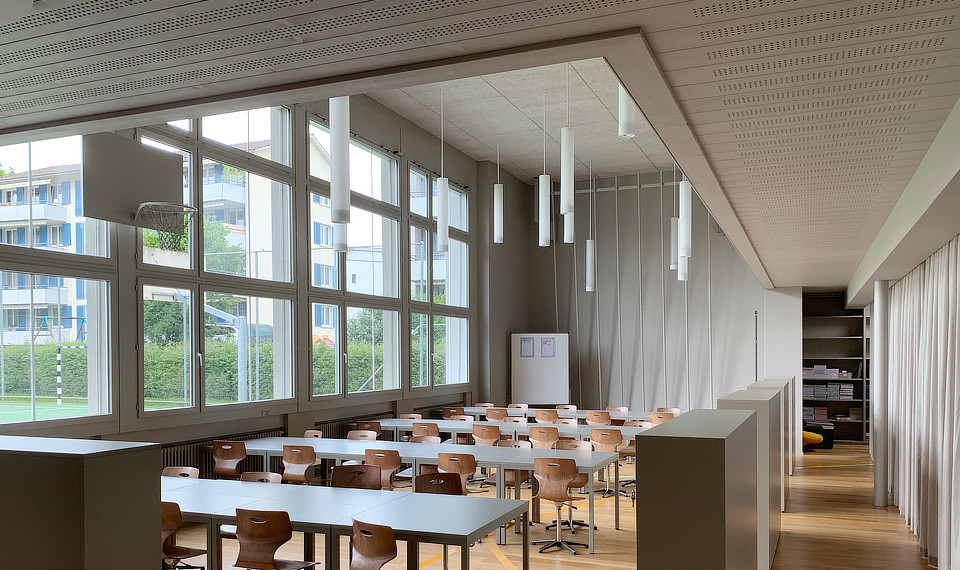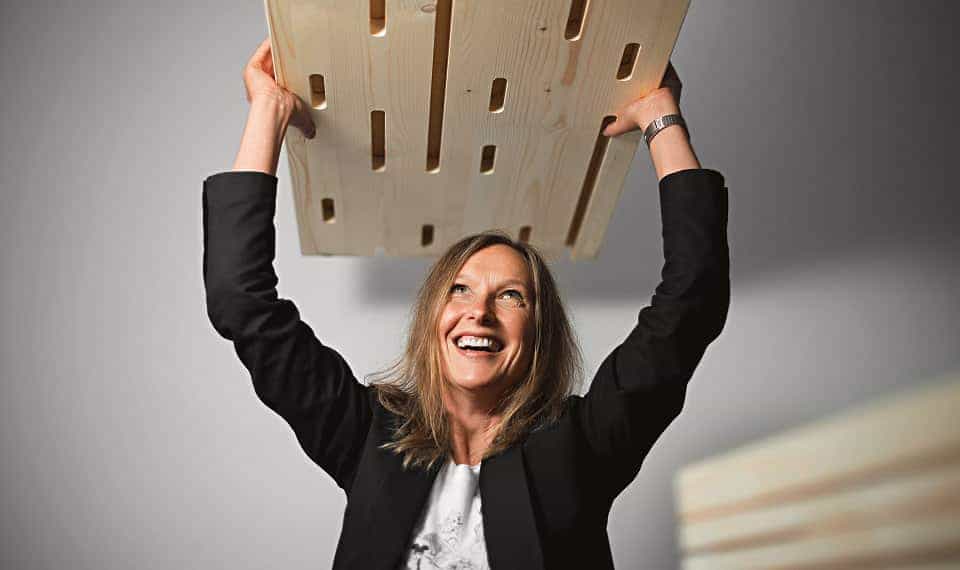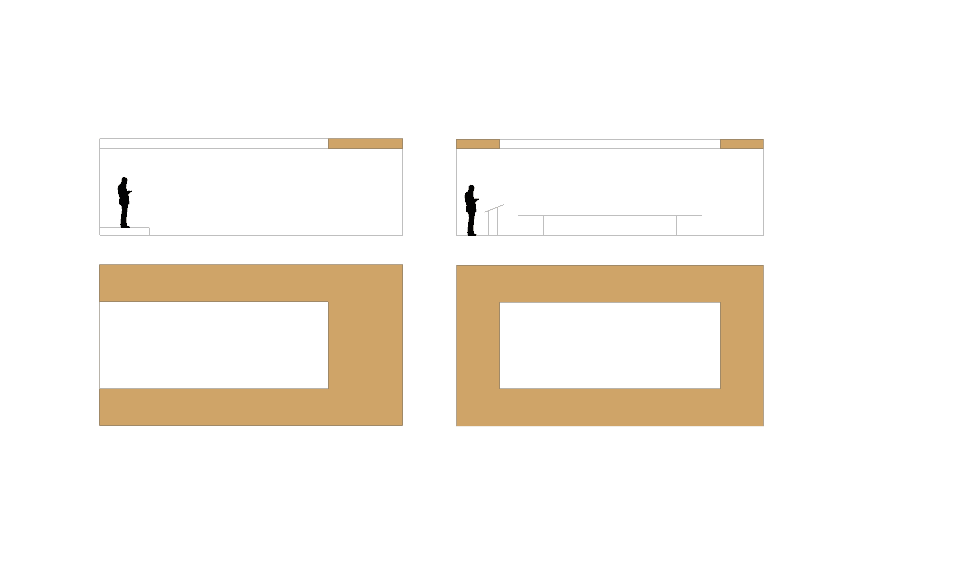Sounds good
Good room acoustics reduce the reverberation time and improve speech intelligibility. LIGNATUR acoustic ceilings transform any room into a concert hall. Recent developments show that building owners are increasingly using acoustic ceilings in living spaces too. On the one hand, because they noticeably increase the quality of living, and on the other, because the ceilings are aesthetically pleasing and can be harmoniously matched to the room geometry and installations.
Immerse yourself in the diversity of acoustic variations with LIGNATUR and let the film inspire you.
Explanation videos on room acoustics
How good the acoustics are in a room depends on the material and properties of the surfaces in the room. For optimal room acoustics, the lower slat of the floor and roof elements can be holed or slotted and backed with high-quality absorbers.
In the films, our consultants explain how it's done with LIGNATUR.
Would you like to learn more? Contact our team.
Sound sample reverberation
Reverberation, the sound you can hear after a specific sound has already been heard. The basketball throwing example in a threefold sports hall with a concrete ceiling shows that 12-second reverberation is irritating.
The required time is 2 seconds.
Listen to more examples to hear how much sound Lignatur acoustic ceilings really absorb. Use high-quality speakers or headphones.
Sound absorption coefficients surface element (LFE)
LIGNATUR surface elements with holes or slots and backed sound absorption panels can be used as acoustic elements. The following values show the statistical sound absorption coefficients that can be achieved with LIGNATUR acoustic elements, measured in accordance with DIN EN ISO 354 or predicted based on the available measurement protocols.

Sound absorption coefficients box element (LKE)
LIGNATUR box elements with drilled holes or slots and backed sound absorption panels can be used as acoustic elements. The following values show the statistical sound absorption coefficients that can be achieved with LIGNATUR acoustic elements, predicted based on the available measurement protocols measured in accordance with DIN EN ISO 354.

Dynamic room accoustics
Combining function with style – putting good room acoustics into optical harmony with the architecture. This was the main goal behind the development of the dynamic, nonrepetitive pattern. Inspired by architectural design ideas, coached by «meierei Innenarchitektur» in Munich, the result is a dynamic design that gives any room a whole new vitality. The intensity of the perforation can be defined by a free choice of parameters.

Individual acoustic solutions
BAU Munich: when the interior designer Dorothee Meier met the timber constructor Ralph Schläpfer, it was the perfect basis for new, individual timber construction solutions. Solutions that not only meet the highest acoustic, living climate and aesthetic requirements, but can also be implemented at low cost!
From 1:55, Ralph Schläpfer presents how the dynamic design was created.

Sound absorption surfaces
LIGNATUR elements with bore holes or slits and installed sound absorption panels can be used as acoustic elements. Please refer to the following diagrams for the statistical sound absorption coefficients achieved with LIGNATUR acoustic elements, measured as per DIN EN ISO 354. The absorbing surfaces have to be distributed evenly to the overall surface. Examples of correct distributions are shown here. We are happy to test the fulfilment of required acoustic quality for the spaces you planned according to DIN 18041 when using LIGNATUR acoustic elements.